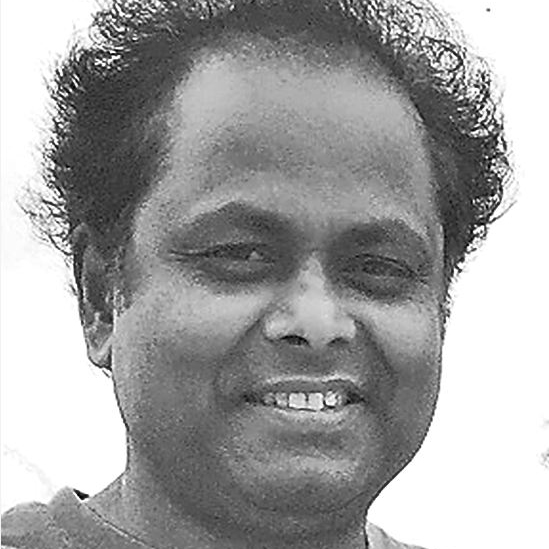Opinion
Learn to unlearn
Tara Westover’s Educated has important lessons for Nepal
Pramod Mishra
As I was finishing Tara Westover’s 2018 memoir Educated, Prime Minister KP Sharma Oli was responding to a question about education at the World Economic Forum in Davos. Westover’s memoir about her struggle for education takes place in rural Idaho in the United States. When asked to comment on education in Nepal, Mr. Oli managed a one-line response about how the country stood to gain from demographic dividends because its population is young. His comment, which focused on formal and vocational education, intercepted with Dr KC’s most recent fast to reform Nepal’s medical education sector.
Westover’s journey
In her book, Westover recounts her struggle for education in a Mormon family in Idaho. Born in 1986, she grows up in a Mormon family ruled by her fundamentalist father who also suffers from bipolar mental disorder but never goes near a hospital, for he is absolutely opposed to the idea of modern medicine and modern education. Bipolar disorder and Mormon fundamentalism make a deadly mix for the family’s seven children, who were not allowed to attend school nor visit hospitals. All remedies must be home remedies; girl children
must be raised for marriage and procreation and boys for work with their hands. The family patriarch’s anti-government paranoia, combined with his total rejection of modern medicine and education, creates countless conflicts for the children and relatives.
Tara, the youngest of the seven, rebels against her father’s fundamentalism and identifies his mental disorder when she is somehow admitted to a college without any prior formal education and takes a course in psychology. The book records her trajectory from a background with no formal schooling to college in Utah and then, by sheer wide-eyed perseverance and serendipity, a PhD program at the University of Cambridge and a fellowship at Harvard. At the end of the book, Tara, a history PhD, reflects on her first three decades of her life and concludes that her research about the dichotomy between secular tradition of modern education and her family’s Mormonism can be viewed in light of each other. But, she insists, her own secular enlightenment that she attained from her educational experiences at some of the world’s premier institutions cannot reconcile her father and relatives’ religious fundamentalism.
As a result of her education and refusal to submit to her father’s fundamental religious beliefs, she finds herself rejected by the majority of her family.
Yet, her very rejection has become her liberation from suffocating faith and her discovery of a more flexible, truthful wider world.
While reading Westover’s memoir, I was curious to know how a child arrives at knowledge, at motivation, and at the desire for a wider intellectual horizon. Tara is exposed to her father’s frequent sermons, to select verses of the Bible, to the natural beauty of her mountainous surroundings, and to her brother Tyler’s inspiring music but she never sets foot in a formal school. Yet, whatever she is exposed to, she absorbs and reflects upon, eventually finding a place for herself in college. And college is where she, for the first time, encounters formal classrooms and coursework at an accredited institution that challenges both her ignorance and assumptions. She rises to the challenge and educates herself by impressing her professors, landing a Gates fellowship to the University of Cambridge. So, for Westover, it was not just a student nor a vetted institution that produces true education, but a meeting of both. The role of an accredited, vetted institution of higher education and the faculty who work there, themselves vetted and tested, also uphold the standards and widen Westover’s intellectual horizon.
And this broader horizon, where critical thinking helps a young person sort out her life’s and society’s conundrums, is made possible by upholding standards and making college and university accessible to all kinds.
Drawing parallels
In Nepal, new possibilities have opened up with the coming of the republic. With the abolition of monarchy, which was the last institutional vestige of hierarchy based on birth, informal caste hierarchy has become a subject of discussion in the country’s print media. Every so often, one reads pieces recounting caste oppression and opposing it. But how does the country’s education system, specifically the curriculum from elementary level to college and university, create a space for critical thinking about the Hindu social reality called caste? What does Mr. Oli have to say about how Nepal’s youthful demographic considers or reflects on issues as caste or ethnicity? How do the young think about it and conduct daily life once they graduate from college and become educated? Dr. KC’s umpteenth fast is for reform in medical education so that the profiteering mafia doesn’t run (over) medical education in the country and that standards are maintained, lives are saved, and other countries recognise Nepal’s medical graduates. Above all, he hopes to ensure that medical education remains accessible to the hard working talented youth, no matter their economic background.
But what about the mind and soul of this young demographic? Who will educate them and how? The prime minister is right to identify Nepal’s demographic dividend in the young but does he have concrete plans and agendas beyond the clichés of formal and vocational education that he mentioned before moving on to other clichés about Nepal, such as natural resources? Westover prompts readers towards the importance of critical thinking and intentional learning—both inside and outside the classroom. Internalising her message in Nepali governance would lead to more concrete plans for Nepali youth.
- Mishra is the Department Chair of English Studies at Lewis University in the United States.




 10.12°C Kathmandu
10.12°C Kathmandu










